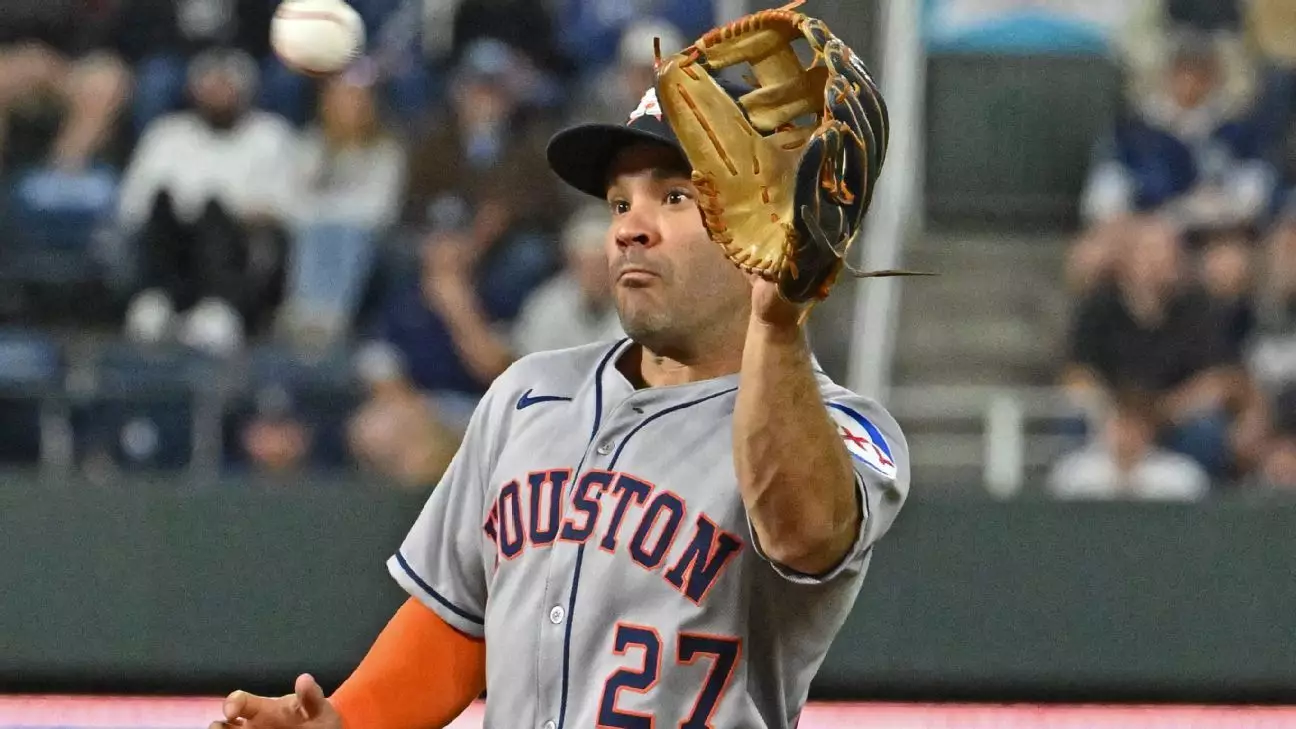In a surprising turn of events for Houston Astros fans, veteran infielder Jose Altuve has embarked on a new journey by transitioning into the outfield. After firmly establishing himself at second base for 14 years, Altuve’s willingness to adapt showcases not only his commitment to the team but also his desire to evolve as a player. This season has been pivotal in reshaping the Astros’ lineup dynamics following critical trades and player departures. Recognizing the importance of efficiency, Altuve even requested a shift to the second spot in the batting order. The 34-year-old’s rationale is simple yet profound: a mere ten-second advantage could spell the difference between a solid hit and an out at the plate.
Reimagining a Winning Strategy
Altuve’s adjustment to the second position in the lineup represents a calculated strategy aimed at rejuvenating a somewhat sluggish Astros’ batting order. Those slight alterations to batting order placements can have rippling effects throughout a season. By advocating for Jeremy Peña to take the leadoff role, Altuve showcases his selflessness, prioritizing the team’s collective success over personal accolades. Peña, with his impressive season statistics, embodies the explosiveness that the Astros seek at the top of the lineup. His ability to ignite plays with aggressive baserunning aligns with a philosophy of risk-taking that often yields rewards in baseball.
In Monday night’s game against the Detroit Tigers, the strategic changes bore fruit, as Altuve celebrated success with a two-run homer while demonstrating that the new batting order had the potential to enhance the team’s offensive performance. His actions in the game reflect not only his talent but also the benefits of collaborative decision-making within the team. Altuve’s statement, “I enjoy playing baseball. I love playing, especially with these guys,” is indicative of his belief in camaraderie as much as in individual skill.
The Importance of Timing
The necessity of timing in professional sports cannot be overstated. In baseball, that element is especially multiplied; a few more seconds can impact the player’s mental state and readiness at bat. With Altuve now juggled between playing left field and hitting in the second spot, the decision reflects both personal and professional adaptability—two characteristics vital for any player facing the latter stage of their career. The transition has highlighted the importance of veterans as core stabilizing forces during times of upheaval.
Manager Joe Espada’s interpretation of Altuve’s insight illustrates the collaborative nature of sports management. This openness to experimentation is essensitoanl for a team’s growth and allows players to voice their concerns and suggestions. The bond that players share with their managers can dictate long-term success, as echoing insights derived from a player’s understanding of the game can often lead to winning outcomes.
The Role of Mentorship
While Altuve’s prowess cannot be questioned, his decision to push for Peña to take the leadoff spot speaks volumes about his understanding of mentorship and nurturing talent. In a team that thrives on collaboration, players often find themselves in roles that support not only their growth but also that of their teammates. Altuve recognizes Peña’s ability to elevate the game, transforming the batting order and creating a synergy that can rejuvenate the entire lineup.
The evolution of players such as Peña is crucial for any franchise. Altuve’s encouragement opens the door for unexplored opportunities for younger players, highlighting the importance of mentorship in sports. Leaders like him create environments where up-and-coming athletes can thrive, learning from the experience of those who have excelled at the highest levels.
In this current trajectory, one can only imagine how this shift will shape the remainder of the Astros’ season. Altuve’s impact, both as a player and as a leader, continues to resonate. He emphasizes adaptability, the power of unity within a team, and the willingness to evolve—all essential facets of competitive sports.

